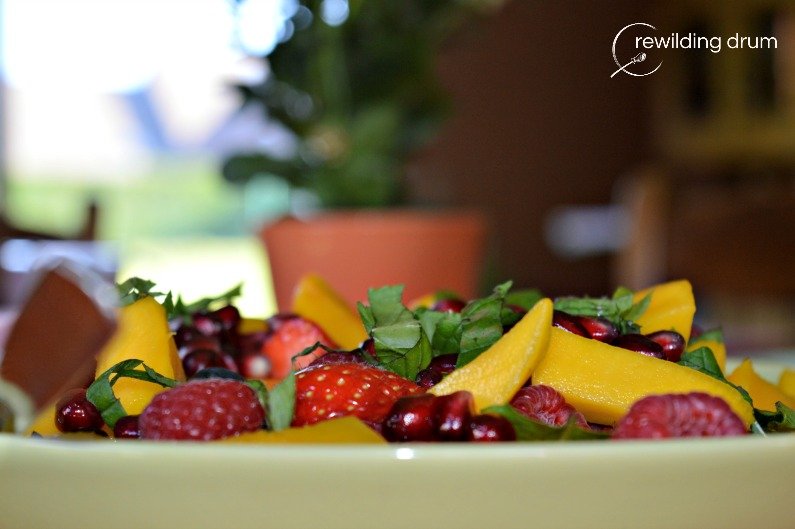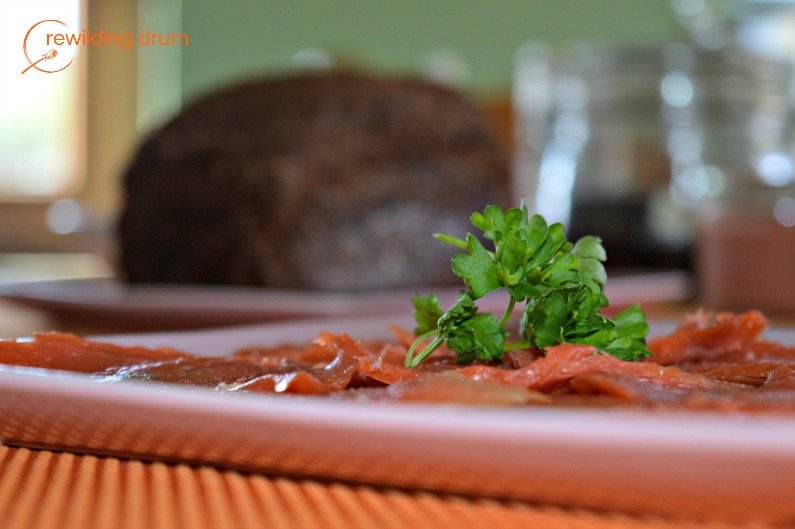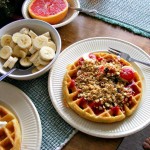As a child, I never questioned my morning sandwich with cheese and a glass of milk.
But when I started to study hunter-gatherer societies, it became clear to me that breakfast was something relatively new in human evolution. Hunter-gatherers first went for food (hunting and gathering) and then they ate. Starting the day with a full stomach was not the best way to go. Later on, as agriculture culture developed, people started working in the field at dawn, and only after some hours of hard labor, they had breakfast.
To most people, breakfast without some kind of bread or grain sounds ridiculous … even impossible. For years they have been deemed healthy for human consumption – even one of the main nutrients in the dietary pyramid – but they are not. Some of the reasons include:
- From evolutionary point of view, humans are not adapted to eat high volumes of cereal grains. Their digestive tracts evolved to eat fruits, vegetables, and wild animal products from time to time. The introduction of agriculture parallels diet-related diseases such as hypertension, diabetes, or atherosclerosis.
- Grains have plenty of calories, in the form of carbohydrates, and that causes blood sugar levels to elevate quickly. Grains consumed in massive quantities, as they are nowadays, disrupt the functioning of our hormonal system, which is more adapted to digest and assimilate low-sugar foods.
- Grains contain “anti-nutrients” – compounds that interfere with the absorption of nutrients, for example:
- Phytic-acid, present in many grains, reduces the absorption of minerals such as calcium, iron, zinc, and magnesium.
- Gluten is a protein that promotes inflammation and illness in gluten-intolerant people (dermatitis, joint pain, celiac disease).
- Grains, especially wheat, are not what they were. They has been genetically modified for economical purposes to adapt to drought, heat or cold. Modern wheat cannot survive anymore in its wild state. It needs human intervention to grow.
Then, what should I have for breakfast? Is breakfast without bread all that terrible?
It is depressing to see a wide range of breakfast options reduced to the dismal, early-morning toast or the aforementioned cereals (Don’t even get me started on cornflakes … they have everything but corn as an ingredient!)
During our travels and expeditions we have shared breakfast with different indigenous peoples. For example, during our stay with the Anishnabe First Nation in Canada, we first had coffee in the morning and then went straight to fishing. Blueberries, leaves and roots were collected along the way. After fishing, a fire was lit to prepare the “breakfast.”
On our first day in Mongolia, we had rice and lamb for breakfast. I must say it was very tasty although a little “different.” Within a few days, I got used to eating lamb at any time of the day.
The traditional Inuit breakfast has no bread, no fruit, no vegetables … just seal soup.
But don’t worry, we are not asking you to have seal for breakfast! The only thing we ask of you to have is an open mind and a willingness to listen to your body. And whatever you do, enjoy it.
Here are five suggestions:
- NO BREAKFAST.
Wow, I was happy to get rid of the seal soup and now you tell me to have nothing at all?!
Despite having heard this all my life: “Have breakfast as if you were a king, lunch as if you were a prince and dinner as if you were a slave,” wolfing down a heavy breakfast only minutes after popping out of bed has always seemed completely unnatural to me. Who is hungry that early? (If you are one of those that does feel hunger pangs during that time period, then, please, eat and enjoy).
Moreover, we must not forget that our body performs intense biological processes each night, such as the purification of waste. This process takes until approximately 11 am to finish, so it’s not advisable to overload your body with very dense food before then.
Starting off your day with a couple of hours of fasting promotes concentration, learning, and memory. Unless you have a ravenous hunger which stops you from performing adequately, do this test. Try to work before and after breakfast, and notice the difference in this regard.
But again, listen to your body.
- FRUIT
Fruit has great potential for breakfast, especially this time of the year. It’s light, and it’s easy to digest and assimilate (for most). Digesting fruit doesn’t require that much energy – energy that could be used for better purposes, like exercise. Moreover, it is a living food and an essential source of nutrients and light (biophotons).
You can eat fruit as a fast snack, or, depending on how much time you have on your hands, you can prepare something more elaborate, like a seasonal fruit salad.
For something more filling, you can add some fat in the form of:
- yogurt
- coconut milk
- seeds (chia, sesame, hemp, flax, etc.)
To enhance the flavor, you can add very fine, chopped, fresh herbs to release all their aromas: lemon balm, spearmint, peppermint, basil, rosemary or another one you like.
- EGGS
The egg is one of the most complete foods around. It is a very complete source of protein, and it provides many vitamins (A, D, E, K, B2, B5, B11, B12) and minerals (phosphorus, potassium, iron, zinc, selenium).
The egg possibilities are almost endless: you can have something as simple as a boiled egg if you’re in a hurry; you can make a quiche (which you can prepare the night before); or our favorite: the tortilla with aromatic herbs (parsley, basil, chives, cilantro) or wild edibles (nettles, plantain, ursino garlic, garlic mustard, dandelion). And if you use a quality oil (olive or coconut oil), you have a very nutritious breakfast – full of flavor.
If you’re really hungry, and you think an omelet won’t be enough, you can add coconut flour, and accompany it with a salad to your liking – tomatoes, cucumbers, olives … you name it!
If you are vegetarian you can replace the eggs with a ripe avocado, also mixing it with herbs or with whatever you like.
Starting the day with protein, which, in its natural state, is usually associated with fat, has the advantage of being more filling while allowing for better control of blood glucose. If you start the day with large amounts of sugar (bread, chocolate, sugary cereals, pastries, cookies), you not only put your hormonal balance (led by insulin) upside down, but you’ll be hungry again much faster. It will give you the typical mid-morning slump, and you will end up snacking more. And you know what excess blood sugar is converted into, right? Exactly. Fat.
- OMEGA 3
If you’re lucky enough to get quality fish, why not incorporate it in your breakfast? It’s fast, you can accompany it with a good salad. It can even be prepared the night before.
- SHAKE/ SMOOTHIE
Finally, the smoothie. It’s fast, refreshing, and very nutritious. But a shake is not about pouring any old thing in a blender. Less is more, and better for digestion and assimilation, so only use four ingredients:
- 1 fruit
- 1 type of green leaf to taste (Chlorophyll in green leaves is key to helping you keep your sweet cravings under control.)
- Liquid: water, vegetable milk, coconut water, an infusion of an herb you like
- 1 type of seed or a tablespoon of oil (coconut, flax, hazelnut) for more nutritional value and flavor, and a more-filling smoothie.
Thus, you have all your nutrients in one glass full of delicious food!
But remember that listening to your body is paramount. Do what feels good for you, what you feel comfortable with, and what gives you the most energy.
Now it’s your turn to test these new kinds of breakfast.
Tell us what is, and which breakfast suits you best?
A hug,









Hi I’m diabetic and allgic to wheat. I’m 1 of them that believe in cereal.. within an hour I WIL have normal. Breakfast.. But it do not fill me cause …I’m dizzy till lunchtime.. When I can eat left overs from supper wich must be food with potatoe or rice to fill Me. From there onwards Im fine.. I can’t eat the obove foods early morning.. What do I do? THANX